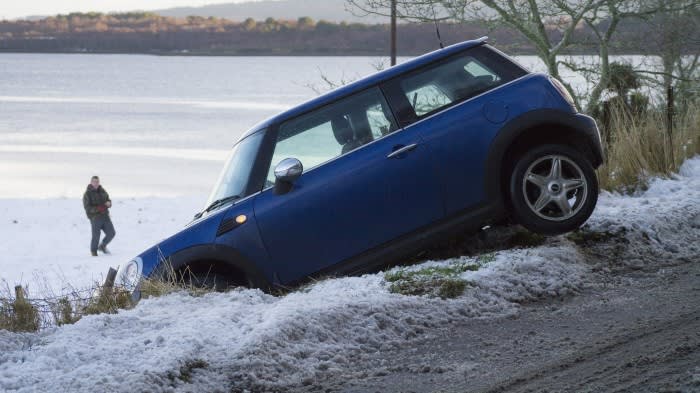Unlock the Editor’s Digest for free
Roula Khalaf, Editor of the FT, selects her favourite stories in this weekly newsletter.
Ministers have pledged to curb the “spiralling” costs of car insurance paid by UK motorists, in an early test of the government’s efforts to balance consumer rights with its pro-business agenda.
Louise Haigh and Tulip Siddiq on Wednesday instructed the competition watchdog and the main financial regulator to join a “taskforce” including industry and consumer groups as part of a push to “agree solutions to keep costs under control”.
The action by the transport secretary and the economic secretary to the Treasury came as the government said motor insurance premiums had jumped by 21 per cent on average since June 2022, much faster than comparable European countries.
The government blamed the surge in the cost of policies on inflation, rising car thefts and “pothole-ridden roads”, with Haigh describing car insurance as “an essential, not a luxury”.
“That’s why we’re taking direct action to bring insurance companies and regulators round the table to discuss how we can crack down on spiralling costs,” she added.
The effort — which is likely to be welcomed by consumer groups but comes after insurance companies have warned against intervening in the market — follows a pledge by Sir Keir Starmer to create a more light-touch regulatory regime for businesses operating in the UK.
At an investment summit in London on Monday, the prime minister vowed to order the Competition and Markets Authority to prioritise economic growth, investment and innovation. Starmer said he would also launch a review of the remit of other big regulators to ensure they were focused on growth.
But his pledge has raised questions over whether changing regulators’ priorities will lead to less focus on their other main objectives, including preventing monopolies and improving competition for customers.
Aviva chief executive Amanda Blanc in June said the motor insurance market was “competitive” and that an intervention would equate to using a “sledgehammer to crack a nut”, after Labour pledged a clampdown in the run-up to the general election.
Insurers have said higher prices for car drivers reflect a rise in claims costs. UK motor insurers suffered a second consecutive year of significant underwriting losses in 2023, meaning prices have failed to keep up with payouts that have surged, in part because of rising costs for parts and labour.
Insurance companies are not expecting intervention in pricing but hope to collaborate with the government on measures to reduce prices, including tackling vehicle theft and uninsured driving, said one industry figure.
Hannah Gurga, director-general of the Association of British Insurers, said the trade body was “aware just how tough the last couple of years have been for motorists” and had been “working hard” with companies “to tackle the cost of claims that impact on premiums”.
“We look forward to bringing ideas to the task force table,” she added.
The average motor insurance premium fell 2 per cent to £622 in the second quarter, the first drop in two years, according to the ABI.


